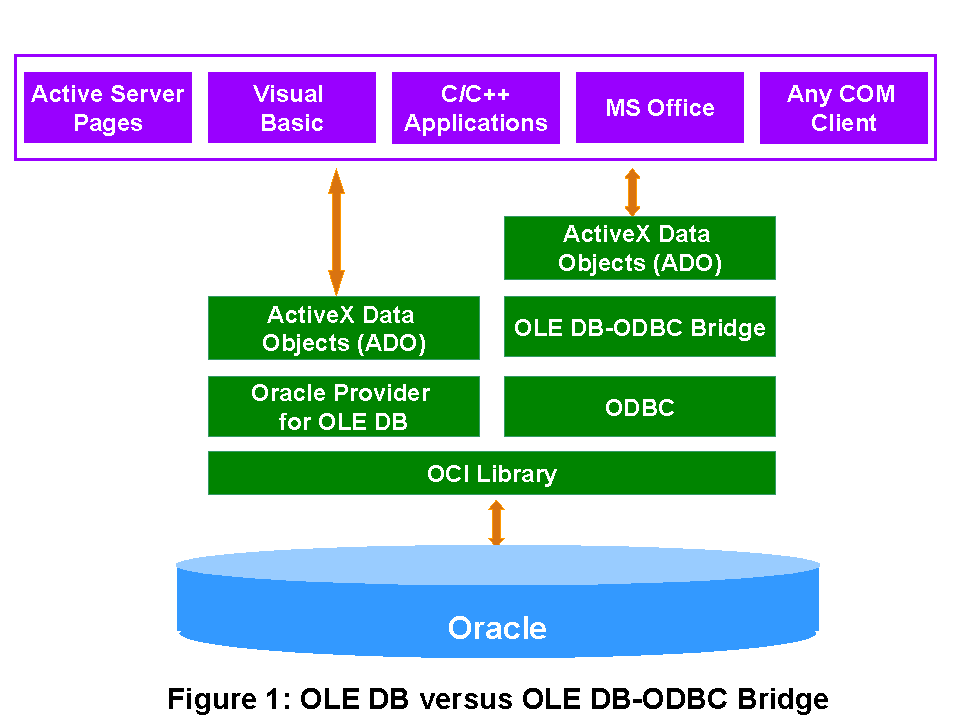Comparing Popular Database Providers: Features and Rates
Comparing Popular Database Providers: Features and Rates
Blog Article
Trick Features to Seek When Choosing a Data Source Company
Picking a database copyright is an important decision that can substantially influence your organization's data and procedures management technique. Amongst the important attributes to consider are scalability choices, which make certain that your system can adapt to growing needs. Security steps, efficiency metrics, and customer support likewise play crucial roles in this assessment procedure. As you consider these factors, it ends up being noticeable that the choice is not simply concerning capability but additionally about aligning with your long-lasting vision. What various other factors to consider might affect this vital choice?
Scalability Options
When picking a data source supplier, understanding scalability choices is vital to guaranteeing that the chosen solution can suit future development. Scalability refers to the ability of a database system to increase its capacity and performance in action to raised demand. There are two main sorts of scalability: straight and vertical.
Vertical scalability, or "scaling up," entails boosting a single server's sources, such as CPU, RAM, or storage space. This method can be cost-effective and uncomplicated for smaller sized applications however may get to a limitation where further upgrades are also costly or impractical.
Straight scalability, or "scaling out," includes adding extra servers to disperse the tons. This approach enables higher flexibility and can fit significant rises in data quantity and user website traffic (database provider). It is especially advantageous for cloud-based data source services that can dynamically allot resources based upon demand

Protection Procedures

When examining safety steps, think about the implementation of encryption protocols (database provider). Data-at-rest and data-in-transit security are important to ensure that delicate info stays secured, even in the occasion of a protection violation. Furthermore, look for providers that offer solid authentication mechanisms, such as multi-factor verification (MFA), to better improve access control
Regular protection audits and compliance with industry criteria, such as GDPR or HIPAA, are a measure of a supplier's commitment to data protection. Additionally, ask about their event feedback strategy; a robust strategy can lessen the impact of any kind of potential safety event.
Performance Metrics
Assessing performance metrics is essential for companies to make sure that their picked data source company meets operational requirements. Trick performance metrics include reaction throughput, time, and scalability, which collectively figure out the efficiency click for more info of data source procedures under varying tons.
Response time is vital, as it mirrors how swiftly the data source can process queries and return results. Organizations needs to look for metrics that suggest typical feedback times during top and off-peak hours. Throughput, commonly gauged in transactions per second (TPS), supplies understanding right into the data source's ability to deal with high volumes of demands without efficiency destruction.
Scalability analyzes the database's capacity to grow with the organization's requirements. A robust database supplier need to show upright and straight scaling capabilities, enabling seamless adjustments as demands vary. Furthermore, comprehending latency, especially in distributed systems, can assist organizations assess the responsiveness of the database across different geographical locations.
Customer Support
Dependable customer assistance is a keystone of reliable database management, providing companies with the help needed to resolve concerns and enhance efficiency. When selecting a data source supplier, assessing the level of consumer support they supply is necessary. A robust assistance system must include numerous channels of interaction, such as phone, email, and live chat, making sure that users can access aid whenever they need it.
In addition, responsive assistance teams that are readily available 24/7 considerably enhance the integrity of the database solution. Prompt action times and effective resolution of problems can considerably minimize downtime and increase overall performance. It is also useful to consider the schedule of dedicated support employees, who can use customized support based upon a company's particular requirements.
.gif)
Pricing Structure
When taking into consideration a database supplier, the rates framework is a critical factor that can dramatically impact an organization's budget plan and general approach. A transparent and versatile rates model is vital for straightening the data source costs with company demands - database provider. Organizations should evaluate whether the rates is based upon intake, per customer, or a flat rate, as each design can produce different economic implications over time
It is very important to analyze any type of added prices associated with the supplier's solutions, such as information storage fees, deal expenses, and assistance costs. Some service providers may use tiered rates, permitting scalability as the organization grows, while others might impose stringent limitations that can come to be pricey as information requirements increase.
Furthermore, organizations ought to think about the long-lasting worth of the data source option. While reduced preliminary costs can be attractive, they may not represent future upgrades, maintenance charges, or combination expenses. Carrying out a complete cost-benefit evaluation will assist identify the most ideal rates framework that balances scalability, efficiency, and support, inevitably making certain that the picked data source company lines up with the organization's financial and functional objectives.
Verdict
In verdict, choosing a data source supplier necessitates cautious factor to consider of different critical functions. Evaluating performance metrics allows the recognition of efficient data sources, and accessible client assistance enhances the overall individual experience.
Picking a database supplier is a crucial choice that can significantly affect your company's data and procedures monitoring strategy.When choosing a database copyright, understanding scalability options is vital to ensuring that the chosen option can suit future development. When picking a data source service provider, examining the degree of consumer assistance they supply is vital.When taking into consideration a data source copyright, the pricing structure is a critical element that can substantially affect a company's budget plan and general method. Carrying out a detailed cost-benefit analysis will certainly read aid recognize the most appropriate pricing structure that stabilizes scalability, assistance, and efficiency, inevitably guaranteeing that the selected data source provider aligns with the organization's economic and operational purposes.
Report this page